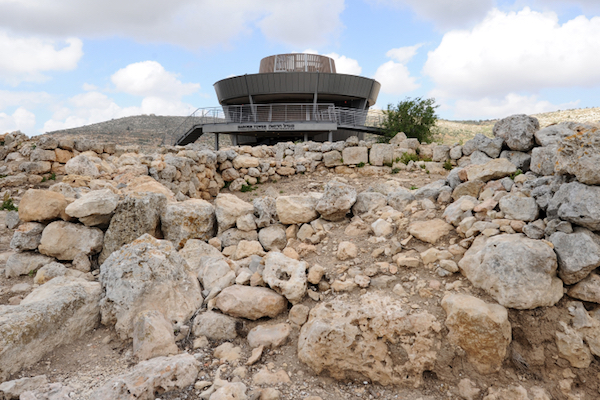An Israeli court rejects a freedom of information request for the names of archeologists digging, under IDF license, in the occupied territories, and where Israel is storing the antiquities they uncover. The reason: so they don’t face academic boycott.

The Jerusalem District Court on Monday refused to reveal the names of archeologists performing digs at antiquities sites in the occupied West Bank, as is the practice of the Israel Antiquities Authority inside the Green Line. The reason: the archeologists’ (and the State’s) fear of academic boycotts, and the difficulties it would pose for ongoing (Israeli) archeological projects in the occupied territories.
The decision was issued in response to a petition filed by human rights organization Yesh Din and archeology NGO Emek Shaveh, against the Israeli military government in the West Bank (the Civil Administration) and the staff officer of its Archeology Department, who are responsible for issuing licenses for archeological excavations in the occupied territory. The petitioners sought information that the military refused to provide as part of a freedom of information request, mainly the names of the archeologists, and where Israeli authorities store antiquities they uncover in the West Bank.
The main thrust of District Court Judge Yigal Marzel’s decision dealt with releasing the names of the archeologists. Judge Marzel recognized the importance of publishing their names, as is customary inside Israel, partly for reasons of transparency, but also because the findings of the excavations are often published academically — which requires publishing one’s name.
However, the State managed to convince Judge Marzel that the archeologists, who testified in an ex parte hearing (without the presence of the petitioners), that publishing their names would pose a real threat of academic boycott due to their work in the occupied territories under a license issued by the military regime.
The State claimed there is also a risk that the archeologists would be unable to publish in international academic journals, and that foreign academics would refuse to work with them in future research or refuse to invite them to conferences, thereby harming their professional careers.
Therefore, the court ruled, the personal risk to the archeologists and to the future of their research is enough to justify not publishing their names. Some of the archeologists did agree to their names being given to the petitioners, and they were.
The court also rejected the petitioners’ request for information about where Israel stores the uncovered antiquities. The State argued, again behind closed doors and without the presence of the petitioners, that the publication of that information would risk the theft of the antiquities, and that it could harm peace talks with the Palestinians.
The court did, however, grant some of the more marginal requests about details of excavations that have been completed. (The full decision can be read here, in Hebrew.)
In response to the decision, Yesh Din said in a statement:
The Israeli authorities’ fear of the boycott against archeologists in the West Bank and of harm to [the state’s] international relations […] is an admission that the state knows its hands are not clean, and must therefore conceal its archeological activities in the West Bank. It is unfortunate that the court chose to lend its hand to a policy of concealment and darkness, which denies the public its right to know and the ability to oversee and criticize.”
Emek Shaveh also responded:
More than anything, the court’s decision shows that archeology in the West Bank is treated as a military activity and not as academic research. The foundation of research is revealing the researcher’s name and publishing their findings. If it is permissible to conceal the names of archeologists in the West Bank and the public has no way of knowing where the archeological findings are located, the conclusion is that archeology in the West Bank is fundamentally political.
This article was first published in Hebrew in Local Call. Read it here.

